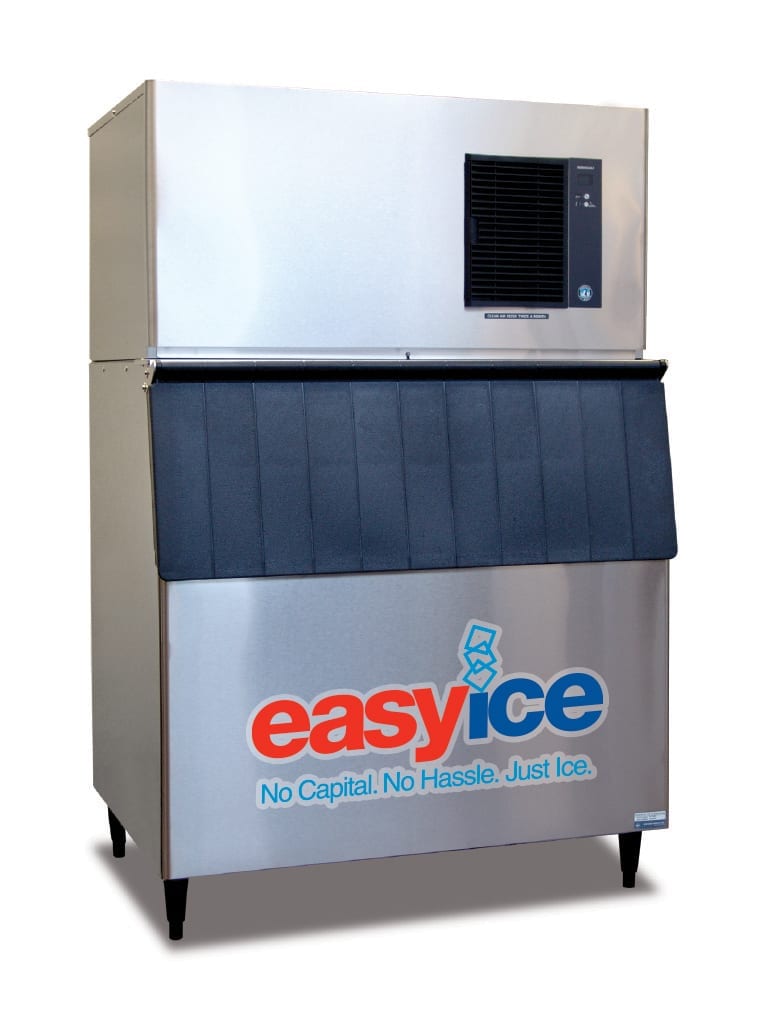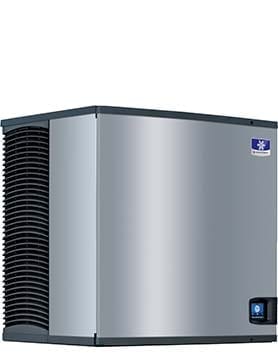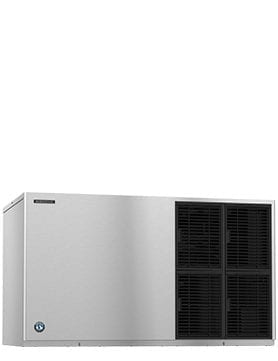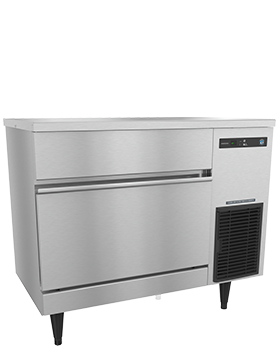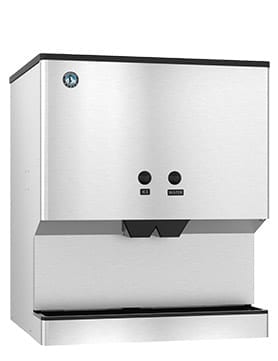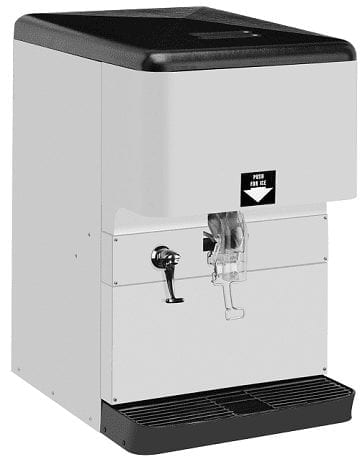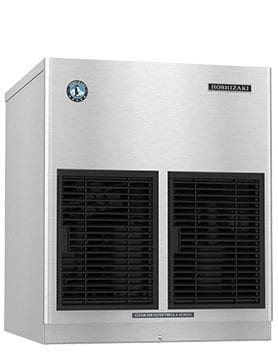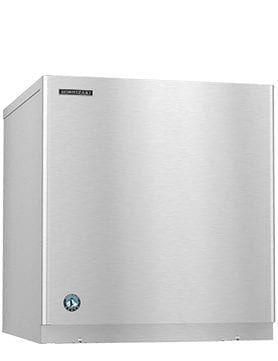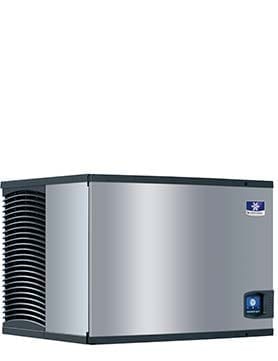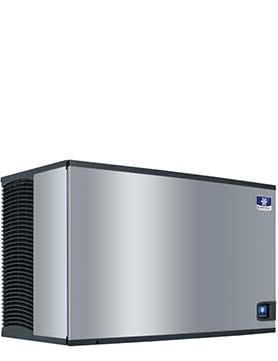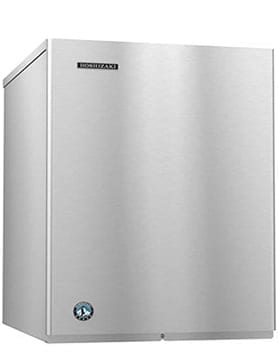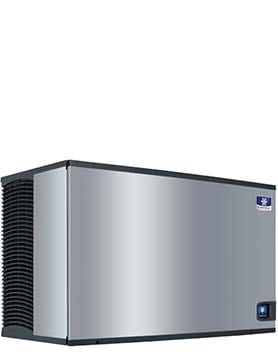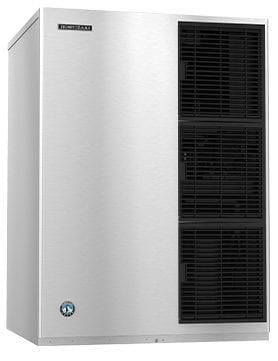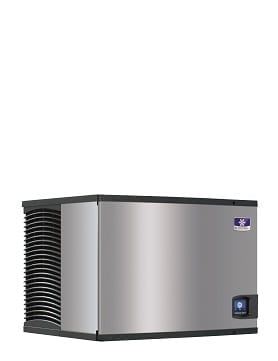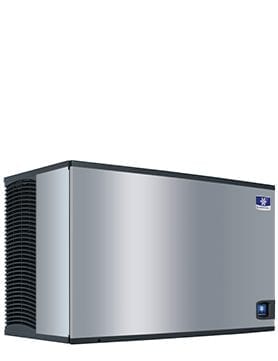Your Ultimate Guide to Commercial Ice Machines
Choosing a commercial ice machine is not as easy as it looks. The size of the machine, ice type, and daily production are just some of the factors to consider. When choosing an ice machine, you also need to factor in the care. Commercial ice machines require preventive maintenance, cleaning, and repairs to keep them performing in top shape. Our commercial ice machine guide is here to help!
Need help choosing a commercial ice machine?
Call us today!
(327-9423)
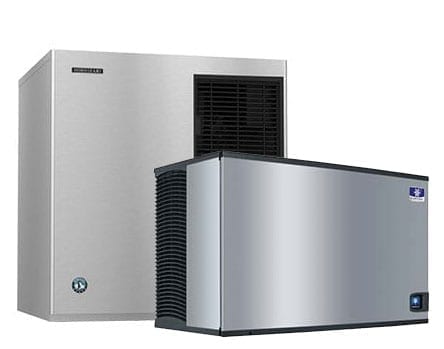
Click a Section Below to Get Started
How Do I Choose the Right Type of Commercial Ice Maker for My Business?
Commercial ice makers come in all shapes, sizes, and styles to meet specific business needs. Whether you run a restaurant, hotel, clinic, or manufacturing plant, there is an ice machine that is perfect for you. Below are some of the types of ice makers for different business needs:
How Do I Select the Right Type of Ice Cube?
The shape of an ice cube is not just aesthetic. Each ice shape provides a different business need. Choosing the right type of ice can help to elevate your drinks, treat ailments, or even save you money.
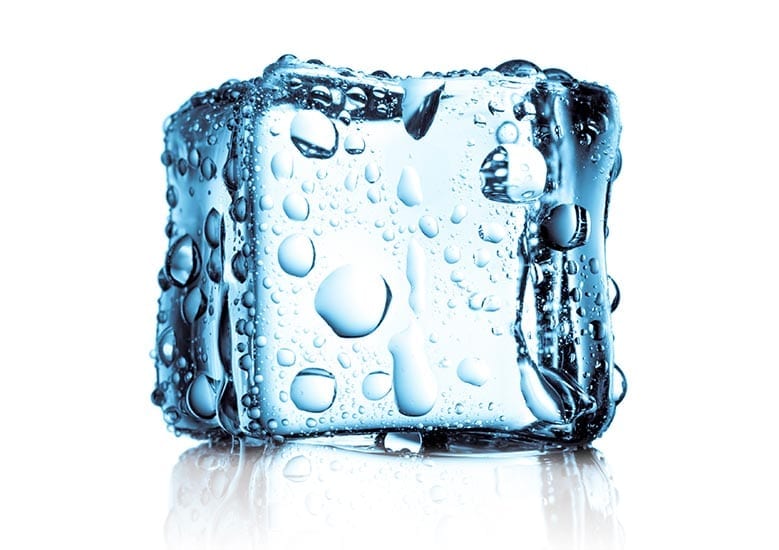
What Size Commercial Ice Machine Do I Need?
The only way to choose the best commercial ice maker is to find out how much ice you need to run your business every day. We’ve made it easy for you to estimate the amount of ice you’ll need with our handy Ice Machine Estimator. To size the correct ice machine and bin for your business, you should follow three criteria.
Daily Ice Usage
How much ice does your business go through in a day? Consider the rate at which you use ice as well. Pay close attention to ice you use for drinks, food prep, beer tubs, or food presentation. Ice makers produce small batches of ice throughout the day, so if you get a 600 lb. machine, it will take 24 hours to reach that amount.
What Type of Ice Machine Condenser Do I Need?
Your ice machine condenser helps to cool refrigerant and emit heat away from the ice machine so it can run smoothly. There are three main types of ice machine condensers.
Air Cooled Ice Machines
The most common and cost-effective condensing unit for commercial ice makers. These systems use a fan to help cool condenser coils and emit hot air into the surrounding environment. Air cooled ice machines need plenty of space for hot air to escape into the environment. This is the most cost-effective and common condenser system you'll find on commercial ice machines.
View Our Air Cooled Ice Machines
What Are Ice Machine Installation Requirements?
Make sure your business can accommodate the commercial ice maker you plan to install. There are four main installation requirements: drainage, electricity, water, and space. We’ve provided a pre-installation checklist that details all the requirements commercial ice machines need to run.

Drainage
Ice melts, and that water needs to go somewhere. A floor drain is the most common drainage method, but other machines (like countertop units) have different drainage methods. Commercial ice machines require a space between the bin drain and floor or sink drain, called an air gap, to meet state health regulations. Make sure to check your local health code for your city’s drainage requirements.

Electrical
Ice makers generally run on two voltages, 115v, and 220v. Smaller machines that produce less than 800lbs of ice a day generally run on 115v. For large ice makers that produce more than 800 lbs of ice a day, a 220v outlet is required. Since 220v outlets are less common, you may need an electrician to secure a 220v outlet.

Water
Ice machines need water to run, and your water line must deliver the proper amount. Without enough water, ice cubes come out small and malformed. Commercial ice machines generally require between 3-5 gallons a minute. You may need a plumber to optimize your water line to deliver that amount prior to installing your commercial ice machine.

Space
Air cooled ice machines (the most common type) need enough space to release that heat into the environment. When commercial ice makers don’t have enough space for hot air to move away from the ice machine, it re-enters the unit and overheats the system. Hot air in your ice machine leads to lower ice production and expensive repairs down the line. At least 1 ft of space on all sides (including the ceiling) is suggested, but more is even better.

We’ve serviced over 10,000 ice machines across the country. No matter the challenge, we know exactly how to keep your ice machine running smoothly. Our pre-installation checklist shows you what you need to provide to install an ice machine in your business. If you have a challenging environment, give us a call and we'll help you find a solution.
Commercial Ice Maker Water Filters
Ice maker water filters help to trap contaminants, sediment, and mineral deposits that can hinder the effectiveness of your ice machine. Without regular water filter replacements, ice machines breakdown due to several issues. We install water filters on every commercial ice machine we service. There are three main types of ice maker filters we recommend:
Standard Sediment Filters
Sediment filters trap particles that can harm your ice maker while allowing water molecules to pass through unhindered. These are great for all water conditions, but particularly necessary in hard water conditions. Standard water filters need replacement every few months. If filters are used past their replacement date, dirt and sediment can plug up your filter and restrict water flow to your ice machine. This results in smaller, malformed ice cubes.
Phosphate Filters
Phosphate filters are used in addition to a standard sediment filter. These filters prevent minerals from forming into scale by satisfying the ionic binds between calcium and magnesium deposits. Phosphate filters technically treat the water. They won’t plug up like standard sediment filters, but they still need replacement every few months before the phosphate in them runs out.
Carbon Filters
These are often used in nugget and flake ice machines and some countertop ice machine models. Carbon filters trap harmful particles that can damage your ice machine. These filters also trap chlorine, which affects the taste and odor of ice. Carbon filters are often used in place of phosphate filters in ice machines that use an auger system where phosphate isn’t effectively flushed out of the ice supply. Carbon filters also need replacing every few months.
Ice Machine Cleaning and Sanitization
Ice machine cleaning and sanitizing is necessary to reduce the growth of mold and slime in your ice maker. A professional ice machine cleaning can also remove scale from vital ice machine parts. Mold and slime can lead to a damaging health violation, while scale buildup can damage your ice maker, requiring expensive repairs.

Regular Cleanings
Commercial ice machines should receive professional cleaning at least every six months. If your ice machine is in a challenging environment, like a bakery or brewery, you'll likely require more cleanings.

Mold and Slime
Mold and slime feed off particles in the air that enter your commercial ice maker. They congregate in moist, dark areas in your ice machine and bin. Health inspectors look for excessive mold and slime growth during inspections.

Don't Forget About Ice Bin Cleaning
Your ice bin is one of the most popular places for mold, slime, and scale to form. Its dark, wet, and open to the environment when many employees scoop ice. Cleaning your ice bin is just as important as cleaning the machine itself.
Factors That Could Influence Your Ice Production
There are a few factors that can affect your ice production in your industrial ice making equipment These factors can overwork your ice machine, which will eventually lead to expensive repairs if they are left unchecked. Here are the factors you should look out for:
Air Temperatures
The temperature around your ice machine is important to maintain when operating an air cooled model. Air cooled ice machines operate best in 70-degree air temperatures. As the temperature rises, ice machines must work harder to freeze a batch of ice. A temperature-controlled room is the best way to manage the surrounding temperature.
Ventilation
Another must-have for air cooled ice machines. Ice machines need plenty of space to emit hot air into the surrounding environment. If not, the air will re-enter the ice machine, overheating the unit.
Water Temperatures
Essential for all ice machine types. Hot water simply takes longer to freeze than cooler water, which overworks the machine lowering your ice production. Water temperatures should stay around 50 degrees Fahrenheit.
Water Condition
Water harbors all manner of contaminants that can damage your ice machine. Water with high-mineral content leads to scale, which blocks water filters and clings to vital ice machine components.
Cleanliness
A dirty ice machine is less effective than a clean one. Dirt and grime can block water flow and insulate components so they can't release heat. Both instances lead to less ice production or smaller ice cubes. It’s important to get a professional ice machine cleaning at least twice a year.
How Much Does an Commercial Ice Machine Cost?
A new commercial ice machine can cost anywhere from $1,500 for a small commercial ice machine to well over $10,000 for a high-volume ice machine with a high-capacity bin. Modular and stackable machines will also require an ice storage bin or dispenser to store the ice. You could buy a used one, but if it wasn't meticulously maintained, there's a good chance it'll break down on you quick. There are a couple of hidden costs involved with properly caring for an ice machine as well. Here are the most common:
Maintenance
Ice machine preventive maintenance costs around $300 per visit.
Manufacturers recommend two maintenance visits per year. During a preventive maintenance visit, ice machine technicians will work to optimize your machine, so it runs smoothly and continues to produce the maximum amount of ice. Preventive maintenance also alerts owners to potential problems that can lead to machine breakdowns and expensive repairs.
Water Filters
Water filtration is necessary to reduce the amount of dirt, minerals, and sediment that enter your ice maker. An ice machine water filter prices range between $15-$100 depending on the brand. They need regular replacement twice a year. When water filters clog, they can lead to smaller, malformed ice cubes. If you have an ice machine installed in a challenging environment, you might require additional water filtration in addition to a standard sediment filter.
Breakdowns
Depending on the problem, ice machine repairs can cost anywhere between a few hundred dollars to a few thousands. Here are some examples of some common ice machine repairs and their estimated costs:
- Hot Gas Valve Replacement - $600
- Expansion Valve - $600
- Compressor Repair - $1500
- Evaporator Repair - $2500
Save Money and Eliminate Stress with an Ice Machine Subscription
An Easy Ice subscription is more than just an ice machine lease. We include preventive maintenance, professional cleaning, and all repairs in your low monthly payment. Ice machine issues can happen anytime, so we also provide 24-hour customer support. You don't have to keep track of your ice machine service appointments. We do it for you! We'll call you when the ice machine is due for its next cleaning and find the best time that works for you! If the ice machine breaks down, we'll supply you with free replacement ice until we get it back up and running.
Our team of Ice Machine Experts is ready to help you pick out the perfect commercial ice machine to fit your needs. Ready to experience the only all-inclusive ice machine subscription for yourself?
